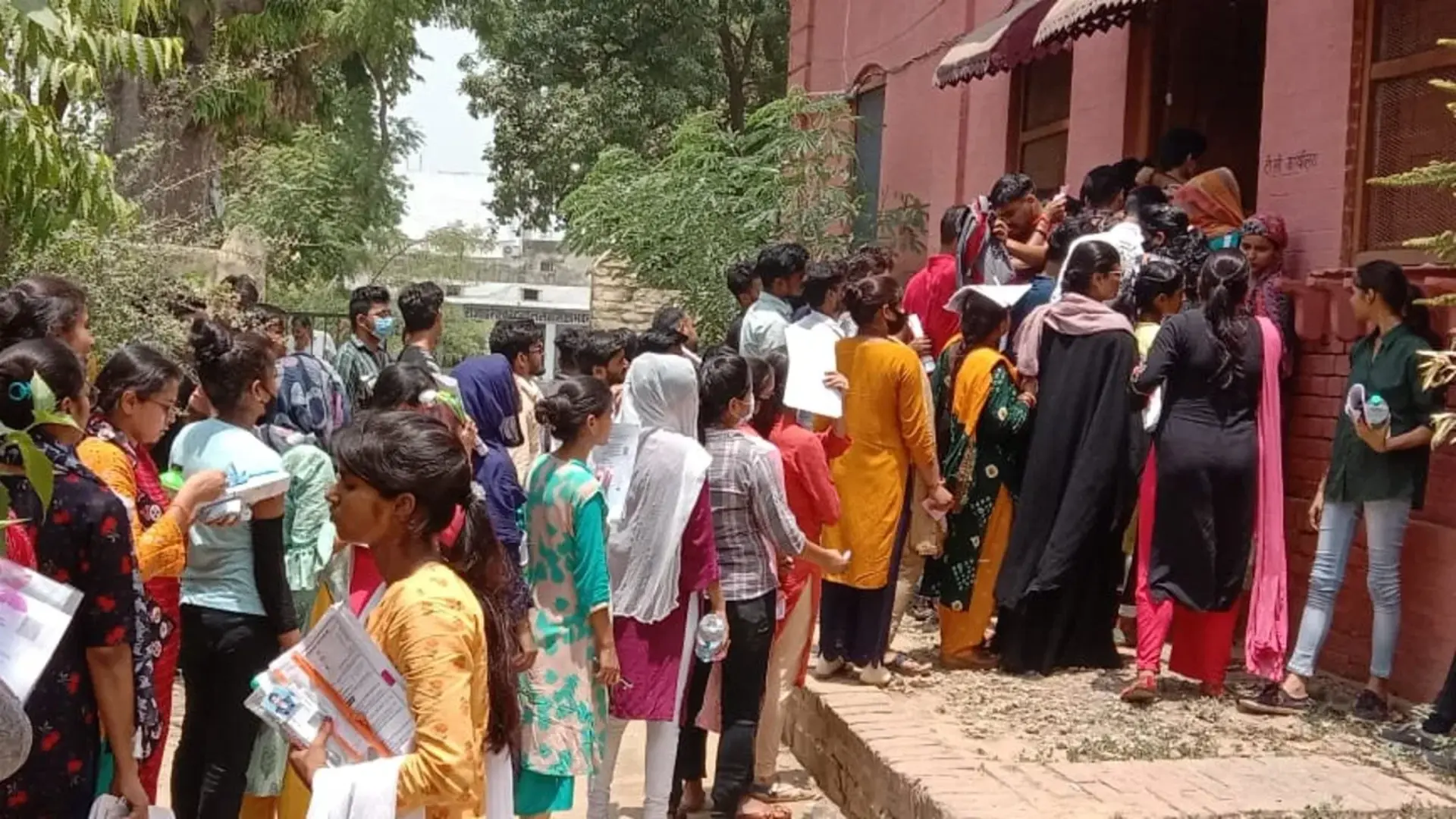Kashmir: – August 5, 2019, will be remembered as a landmark day in the history of Jammu and Kashmir (J&K). The abrogation of Article 370 by the central government marked the beginning of a new era of development and integration for the region. This detailed report delves into the state of J&K before the historic decision, highlights the significant developments over the past five years, and examines the central government’s ongoing efforts to ensure sustainable progress and prosperity in the region.
Pre-2019 Jammu and Kashmir: The Challenges of Special Status
Legal and Administrative Isolation:
J&K’s special status under Article 370 granted it a unique position within India, allowing it to have its own constitution and separate laws. While this autonomy was intended to preserve the region’s distinct identity, it also resulted in significant legal and administrative isolation. The limited application of central laws led to inconsistencies in governance and administrative processes, causing inefficiencies and challenges in law enforcement.
Economic Stagnation:
The economic landscape of pre-2019 J&K was bleak, characterized by stagnation and underdevelopment. Political instability and persistent security concerns deterred investment and economic activity. The region struggled with high unemployment rates, limited industrial growth, and inadequate infrastructure. These factors collectively discouraged private and public investments, perpetuating a cycle of economic stagnation.
Security Issues
Since the late 1980s, J&K had been plagued by insurgency and terrorism, creating a volatile security situation. The presence of numerous terrorist groups and frequent clashes with security forces resulted in widespread violence and instability. This environment of fear and uncertainty severely disrupted everyday life, hindering developmental efforts and deterring tourism, a significant potential source of revenue.
Underdeveloped Infrastructure:
Infrastructure in J&K lagged significantly behind other regions. The state of roads was poor, healthcare facilities were limited, and educational institutions were inadequate. This underdevelopment affected the quality of life for residents and stymied economic prospects. The lack of reliable infrastructure also posed a barrier to the implementation of development projects.
Governance Challenges:
Governance in J&K was marred by corruption, inefficiency, and a lack of accountability. Dynastic politics dominated the region, with power concentrated in a few influential families. This concentration of power often led to governance that was not in tune with the needs of the broader population, exacerbating issues of corruption and mismanagement.
Post-2019: A Transformative Journey
The revocation of Article 370 and the reorganization of J&K into two Union Territories – Jammu & Kashmir and Ladakh – have catalyzed a series of transformative changes. Over the past five years, several key developments have taken place, marking a new chapter in the region’s history.
Legal and Administrative Reforms
Unified Legal System:
The extension of 890 central laws to J&K has established a uniform legal framework across the Union Territory. This has facilitated better governance, improved law enforcement, and enhanced citizens’ rights. The implementation of these laws has streamlined administrative processes and ensured that residents of J&K have the same legal protections as those in the rest of India.
Efficient Administration
Direct central administration has brought about more efficient and transparent governance. Reforms aimed at reducing corruption and increasing accountability have fostered a more responsive and effective government. The administration’s focus on accountability has ensured that development initiatives are implemented efficiently, directly benefiting the residents.
Economic and Infrastructure Development
Infrastructure Investment:
Significant investments in infrastructure projects worth over Rs 32,000 crore have transformed the connectivity and transportation landscape of J&K. Key projects include the construction of new highways, railways, and airports, which have improved accessibility and economic integration. The Udhampur-Srinagar-Baramulla rail link project is a noteworthy example, enhancing connectivity between the Kashmir Valley and the rest of India.
Tourism Revitalization:
The tourism sector, a vital part of J&K’s economy, has seen a major boost through initiatives like the Swadesh Darshan and PRASHAD schemes. These efforts have developed tourist destinations and pilgrimage sites, attracting visitors and driving economic growth. The integrated development of the Hazratbal shrine and the promotion of winter sports in Gulmarg are notable success stories in this regard.
Agricultural Reforms:
The agricultural sector, the backbone of J&K’s economy, has benefited from substantial investments in cold storage facilities, food processing units, and modern farming practices. These initiatives aim to increase productivity, reduce post-harvest losses, and improve farmers’ incomes. The introduction of high-yield crop varieties and advanced irrigation techniques are part of the broader strategy to bolster the rural economy.
Social and Educational Progress
Educational Advancements:
Education has been a key priority, with the establishment of 50 new degree colleges and enhancements to existing institutions. These efforts aim to provide quality education and equip the youth with the skills needed to compete nationally. Initiatives such as setting up Indian Institutes of Technology (IITs) and Indian Institutes of Management (IIMs) are part of broader educational reforms aimed at creating a knowledge-based economy.
Employment Generation:
Employment initiatives have been robust, with the government distributing appointment letters to thousands of newly recruited employees. Various schemes have been launched to promote entrepreneurship and self-employment, particularly among youth and women. The “Himayat” and “Udaan” schemes are notable programs designed to enhance skill development and job creation.
Enhanced Security and Stability
Improved Security Situation:
The security scenario in J&K has significantly improved, with a notable reduction in insurgency-related incidents. Enhanced security measures, including increased surveillance and proactive policing, have restored a sense of normalcy. The improved security environment is crucial for ongoing and future development activities, as it instills confidence among investors and tourists.
Administrative and Political Reforms:
*Political Inclusivity and Reform*
The central government has emphasized the end of dynastic politics and the introduction of more democratic governance structures. The focus has been on inclusive development, ensuring that all regions and communities benefit from the new policies and initiatives. This approach aims to foster unity and equitable growth across J&K. The conduct of free and fair local body elections is a significant step towards strengthening grassroots democracy.
Future Prospects: A Vision for a Developed Jammu and Kashmir
Prime Minister Narendra Modi has consistently highlighted that the development of J&K is integral to the vision of a developed India. The ongoing projects and reforms are expected to drive holistic development, transforming the region into a hub of economic and cultural activities. Key future initiatives include:
Tourism Promotion:
Further developing J&K as a global tourism destination through campaigns like the “Chalo India Global Diaspora” and promoting cultural tourism. The aim is to showcase J&K’s rich heritage and natural beauty to the world, driving tourism-related economic growth.
Educational Reforms:
Continuing to expand and improve educational infrastructure to create a skilled workforce ready to meet modern challenges. The establishment of new research centers and collaboration with international educational institutions are part of the vision to make J&K an educational hub.
Agricultural Innovation:
Introducing advanced agricultural technologies and practices to boost productivity and sustainability. The focus will be on organic farming, high-value crops, and developing agro-processing industries to add value to agricultural products.
Industrial Development:
Promoting industrial development by setting up special economic zones (SEZs) and industrial corridors. These initiatives aim to attract domestic and international investors, creating job opportunities and driving economic growth.
Healthcare Improvements:
Enhancing healthcare infrastructure by building new hospitals, upgrading existing facilities, and ensuring access to quality healthcare services. Telemedicine and mobile healthcare units will play a crucial role in reaching remote areas.
Environmental Conservation:
Implementing sustainable development practices to protect J&K’s unique environment. Efforts will include afforestation projects, waste management systems, and renewable energy initiatives to ensure long-term environmental sustainability.
In conclusion, the abrogation of Article 370 has set the stage for Jammu and Kashmir to embark on a remarkable journey of transformation. The central government’s vision and policies have facilitated unprecedented development, integration, and stability in the region. As J&K continues to evolve, the focus remains on sustainable growth, social justice, and economic prosperity, promising a brighter future for all its residents.







